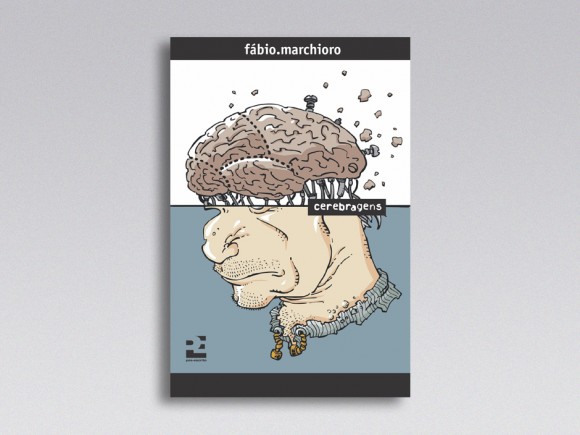Warren Ellis é um dos “meninos terríveis” do mundo das histórias em quadrinhos e graphic novels no mundo. O cara “fala duro” e não perdoa nada nem ninguém. Mas produz como um louco e com uma qualidade invejável. Recebo a coluna dele, Bad Signal, por email mas me parece que peridiocidade é mais para os lados do “quando dá”.
Sempre que “der” para ele, posto a coluna aqui. E, quando “der” para mim, posto um atradução também.
Pessoalmente sou um defensor ferrenho de se produzir textos que, de alguma forma, transmitam, provoquem ou criem emoção. A princípio pode parecer que ele defende um ponto de vista diferente, mas no final prevalece o mesmo entendimento.
Sorry, está em inglês. Sem tempo ou cabeça para traduzir.
WARREN ELLIS
There’s something in the word “emotion” in terms of creativity that says “mediocrity” to me.
I was re-watching the feature on the making of GODFATHER 3 from the DVD set the other day, which is a heartbreaking document. What was in Francis Ford Coppola is seen to have died, and only he and his well-trained cadre of sycophants don’t see it.
He talks about not wanting to go back the third time because he felt he’d “mined the emotional material of that family.” In terms of story development, he rails at his team, “How do we say it emotionally?” “If we can do it in an emotional way,” he jabbers on the phone in a tiny room, “we can kick it right over.”
One of the first script meetings is filmed. Diane Keaton, sharp as a switchblade, has fixed on something. “How does it END?” Coppola is at the head of the table. “Well, I have many things to resolve.” “Yeah, but how does it END?” Cut.
The long, horrible film proves Keaton right and makes Coppola look like an idiot. By the time an intermission comes in the interminable opera scene that forms the last dragging act, the Mafia are talking about saving people in jeopardy like they’re suddenly the fucking Thunderbirds. Pacino emotes over people, corpses, houses and bits of furniture like the lazy old trouper he was in that phase of his career. Andy Garcia exults in the scenes of violence and looks
terrified the rest of the time. Keaton knew her part was fucked from the start and acts like it. It’s an awful thing to sit through, but it’s a weirdly rewarding act, because it drives something home about writing.
There was a comics writer, no longer working, who used to declaim to everyone that Stories Are Structure. He was and is wrong. Stories grow from your chosen rootstock, which is not the same thing. You can’t just shoehorn in “emotion.” If your characters don’t breathe, it’s not because you haven’t stopped to consult a commitee about how to “say it emotionally.” It’s because
you can’t write anymore. If there is no “emotional material,” it’s because your characters are dead and you’ve got nothing to say.
In comics, there’s always talk of “characterisation.” It’s a bullshit term. It means “writing.” Some of the best writers make the reader infer character by what their figures don’t say and don’t do. Decide who they are and what they
do, and they will “say it emotionally” as a natural consequence of the writing. Sometimes they’ll surprise the reader. Sometimes they’ll surprise you. But it will be authentic.


